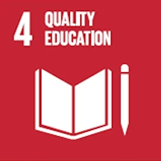Our mission
To ensure that all Brazilian children and young people fulfill their learning rights, set by Brazil’s National Learning Standards, so they can fully develop and be prepared to be versed citizens.
Who we are
Movimento pela Base is a non-profit organization conceived to support the development and implementation of Brazil’s first National Learning Standards, the BNCC or Base Nacional Comum Curricular, and of Novo Ensino Médio (Novo EM), a new model for High School that provides a more flexible and purposeful learning.
We’re a non-partisan network of over 80 well-renowned people and institutions.
We coordinate a national mobilization of key stakeholders regarding the implementation of such education policies, producing studies and research, promoting debate and consensus to support their decisions with technical standards and political legitimacy, and ensure that fundamental principles are observed so the learning standards truly reach every Brazilian classroom.
2026 Goals
-
01
Foster a high-quality and coherent implementation of the National Learnings Standards (BNCC) and Novo EM at the state and district levels
-
02
Secure long-term, national continuity of the BNCC and Novo EM
-
03
Support a legitimate, quality revision of the BNCC in 2026
Why are National Learning Standards so essential in Brazil?
Inequality is a long-term problem for the Brazilian Educational System. Our country’s regions are diverse. They have a complex configuration, long distances to overcome, and plural and diverse people with multicultural heritage. Brazil also has extreme difficulties in ensuring the continuity of public policies. The country’s democracy is young and still fragile. Structural problems compromise the minimal conditions to ensure learning processes. National Learning Standards are a path to:
- set high-level expectations for what all children, teens, and young people should be learning as a nation, regardless of where they live or study;
- focus on competencies and skills development, proposing a paradigm shift in practices to secure a more purposeful and complete learning experience;
- the first step to structure a more coherent system, where the BNCC is the primary reference for regional curricula, professional development, learning materials, and assessments;
- prepare students for life and work. The BNCC is more connected with today’s challenges and opportunities and contributes to a more just and democratic society.
Our key achievements
- MPB supported the BNCC development and approval. It took five years and involved three drafts, contributions from over 300 thousand educators, spanning eight education ministers and two presidents. MPB conducted critical reviews of the standards led by world-renowned specialists. We supported seminars in all 27 states that engaged over 3,000 municipalities, prompted the Ministry of Education to run public consultations with 12 million contributions, and fostered debates among 9,000 teachers and managers. The debates were organized by the Brazilian National Council of Secretaries of Education (CONSED) and the National Union of Municipal Education Administrators (UNDIME).
- After the BNCC was approved, MPB pivoted to monitoring its implementation quality and has been consistently recognized for building consensus among civil society and government. Since 2020, MPB has been engaging with and providing guidance to all 5,568 municipal departments to advance the adoption of new BNCC-aligned local curricula and collect primary data. We collaborated closely with all 27 UNDIME and Union of Municipal Education Councils (UNCME) state offices.
- Today, MPB is a well-informed organization that knows the status of the process in every Brazilian municipality. We share information, good practices, and other pertinent aspects in an Observatory for the BNCC. MPB’s Observatory is a reference on the BNCC and its ongoing, nationwide process.
- In 2021, MPB and other organizations conducted a representative study to measure teachers’, pedagogical supervisors’, and principals’ perceptions of the BNCC in their schools. The results show that 79% of teachers positively perceive the BNCC’s impact on their professional behavior. And 87% of principals positively perceive the BNCC’s impact on the schools’ educational management. These numbers show we’re on the right path to securing a more purposeful and equitable education for Brazil’s children and young people. But the work isn’t over yet. We still have a long way to go to secure the continuity of the National Learning Standards and improve them.
Will you join us?
Our supporters

Learn more
Sustainable Development Goal





